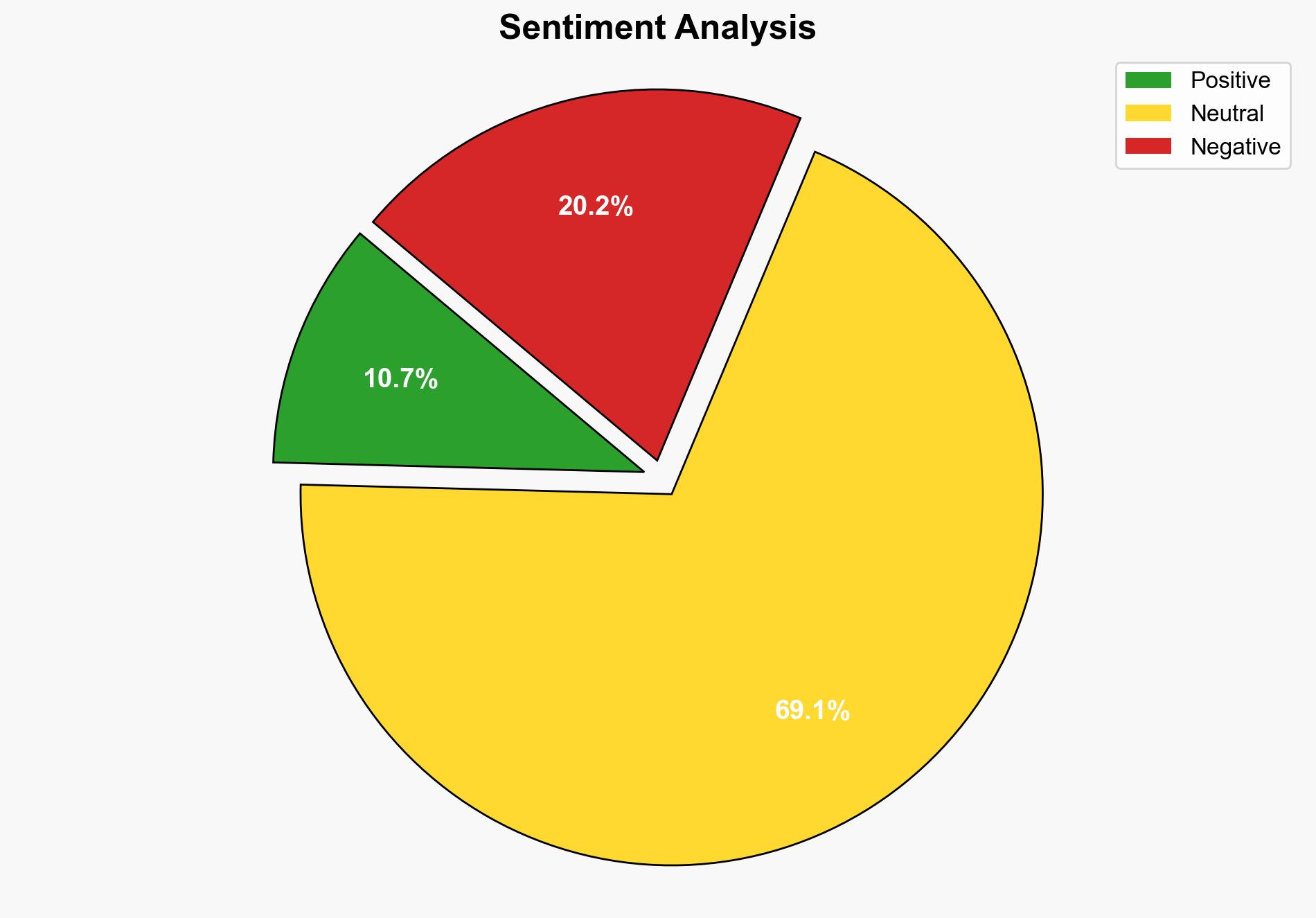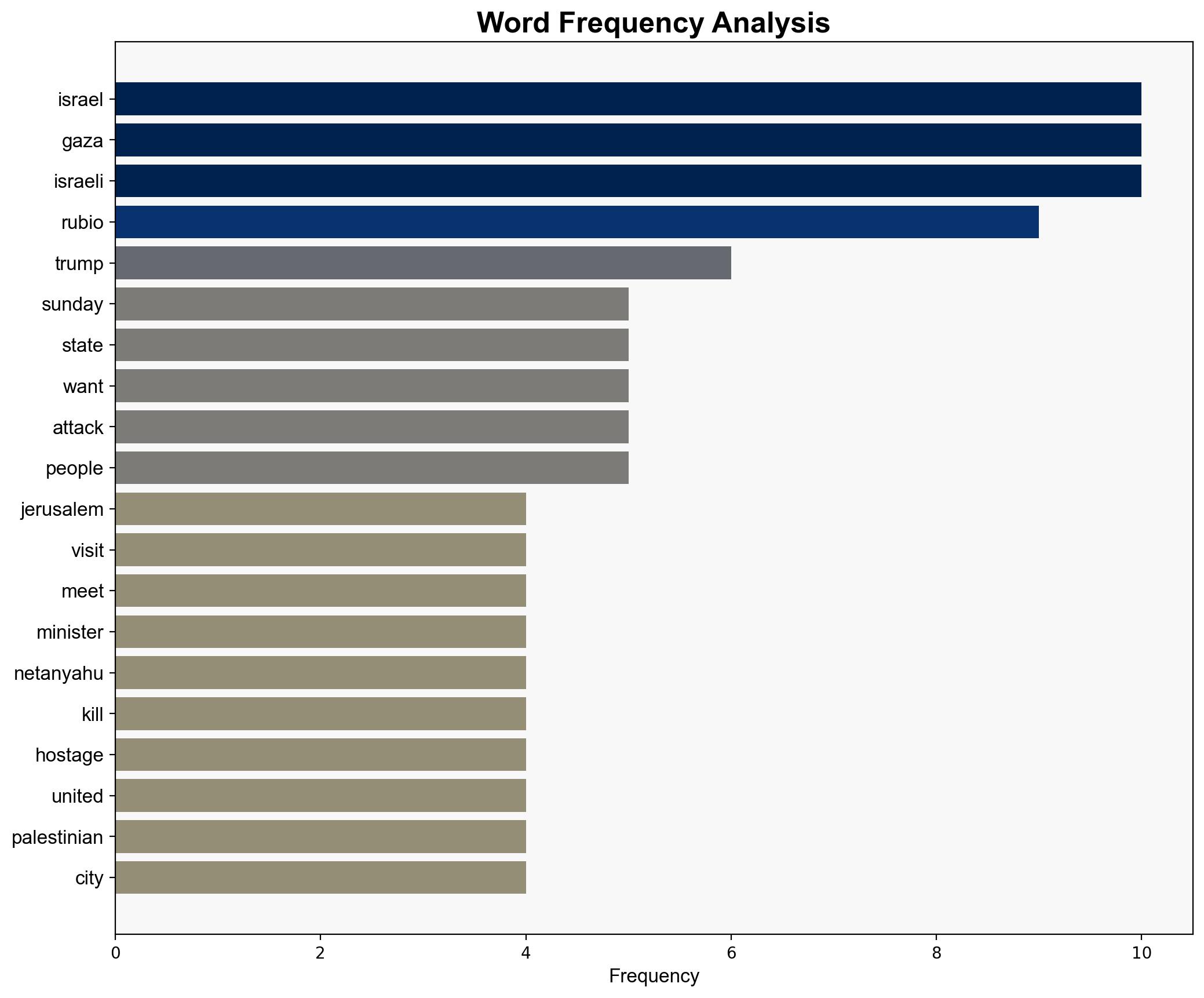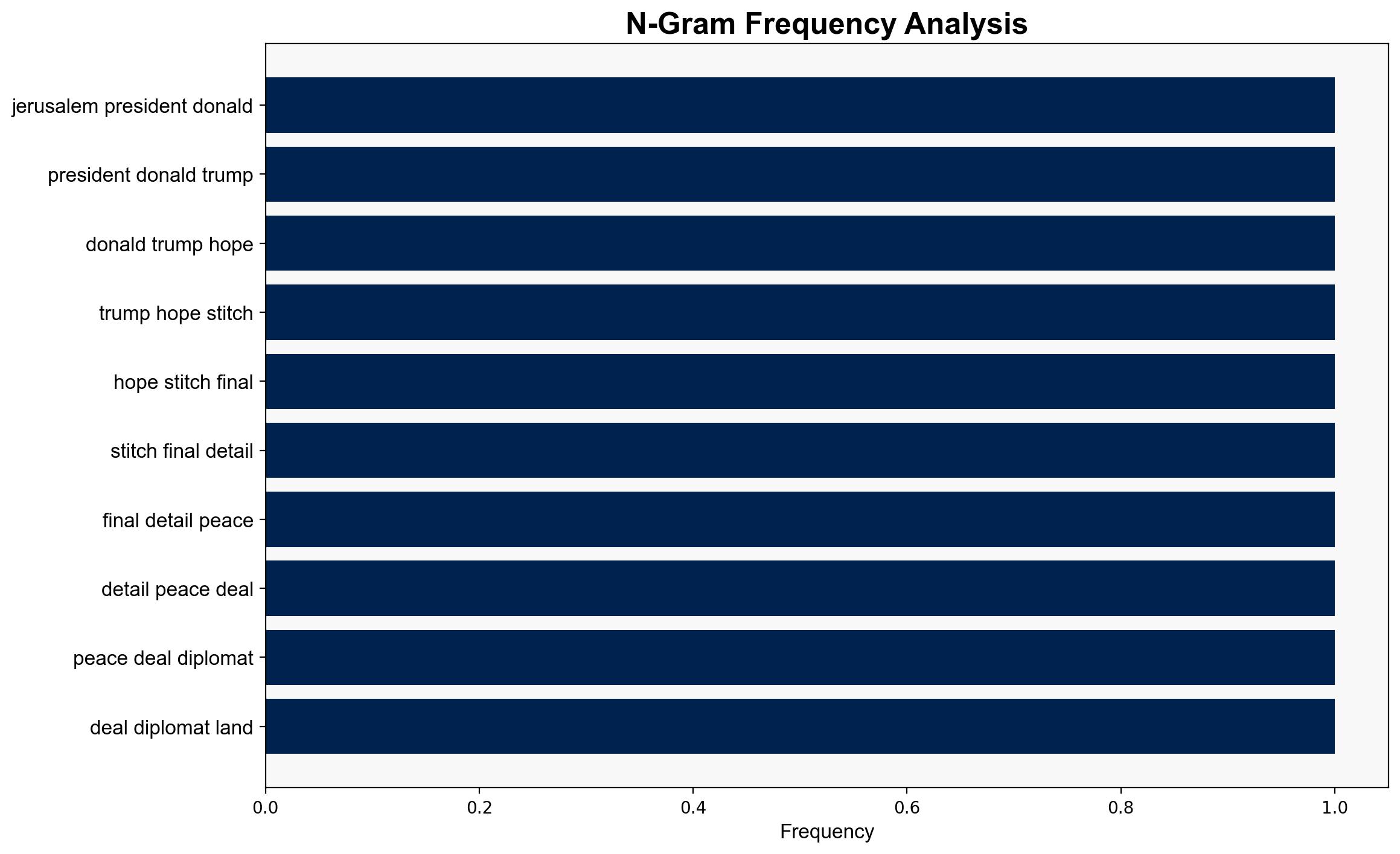US shows Israel support but seeks answers after Qatar attack stirs anger – NBC News
Published on: 2025-09-14
Intelligence Report: US shows Israel support but seeks answers after Qatar attack stirs anger – NBC News
1. BLUF (Bottom Line Up Front)
The strategic judgment is that the US is attempting to balance its support for Israel with maintaining diplomatic relations in the Middle East, particularly with Qatar. The most supported hypothesis is that the US seeks to de-escalate tensions while preserving its strategic alliances. Confidence level: Moderate. Recommended action: Engage in diplomatic dialogue to clarify positions and prevent further regional destabilization.
2. Competing Hypotheses
1. **Hypothesis 1**: The US is primarily focused on supporting Israel’s security operations while managing fallout from the attack on Hamas in Qatar to maintain regional stability.
– **Supporting Evidence**: Strong US-Israel relations highlighted by high-level visits and statements; US interest in ending the conflict and securing the release of hostages.
2. **Hypothesis 2**: The US is using the incident to recalibrate its Middle East strategy, potentially distancing itself from aggressive Israeli actions to preserve broader regional alliances.
– **Supporting Evidence**: Diplomatic engagements with Qatar and other regional powers; concerns over the impact of Israeli actions on US relations with other Middle Eastern countries.
3. Key Assumptions and Red Flags
– **Assumptions**: The US has the diplomatic leverage to influence Israeli actions; Qatar’s role as a mediator is crucial for regional stability.
– **Red Flags**: Potential over-reliance on diplomatic channels without considering ground realities; lack of clear US policy direction could lead to misinterpretations by regional actors.
– **Blind Spots**: Internal political dynamics within Israel and Qatar that may affect their responses to US actions.
4. Implications and Strategic Risks
– **Geopolitical Risks**: Escalation of tensions could lead to broader regional conflict, affecting global energy markets and international security.
– **Economic Risks**: Disruption in Middle Eastern diplomatic relations could impact trade and investment flows.
– **Psychological Risks**: Increased anti-US sentiment in the region if perceived as biased towards Israel.
5. Recommendations and Outlook
- Engage in multilateral talks involving key regional players to de-escalate tensions.
- Strengthen intelligence-sharing mechanisms to anticipate and mitigate potential threats.
- Scenario Projections:
- Best: Successful diplomatic engagement leads to a ceasefire and stabilization.
- Worst: Escalation into a broader conflict involving multiple regional actors.
- Most Likely: Continued diplomatic maneuvering with intermittent escalations.
6. Key Individuals and Entities
– Donald Trump
– Marco Rubio
– Benjamin Netanyahu
– Mohammed bin Abdulrahman Al Thani
– Bezalel Smotrich
– Dan Shapiro
7. Thematic Tags
national security threats, cybersecurity, counter-terrorism, regional focus





